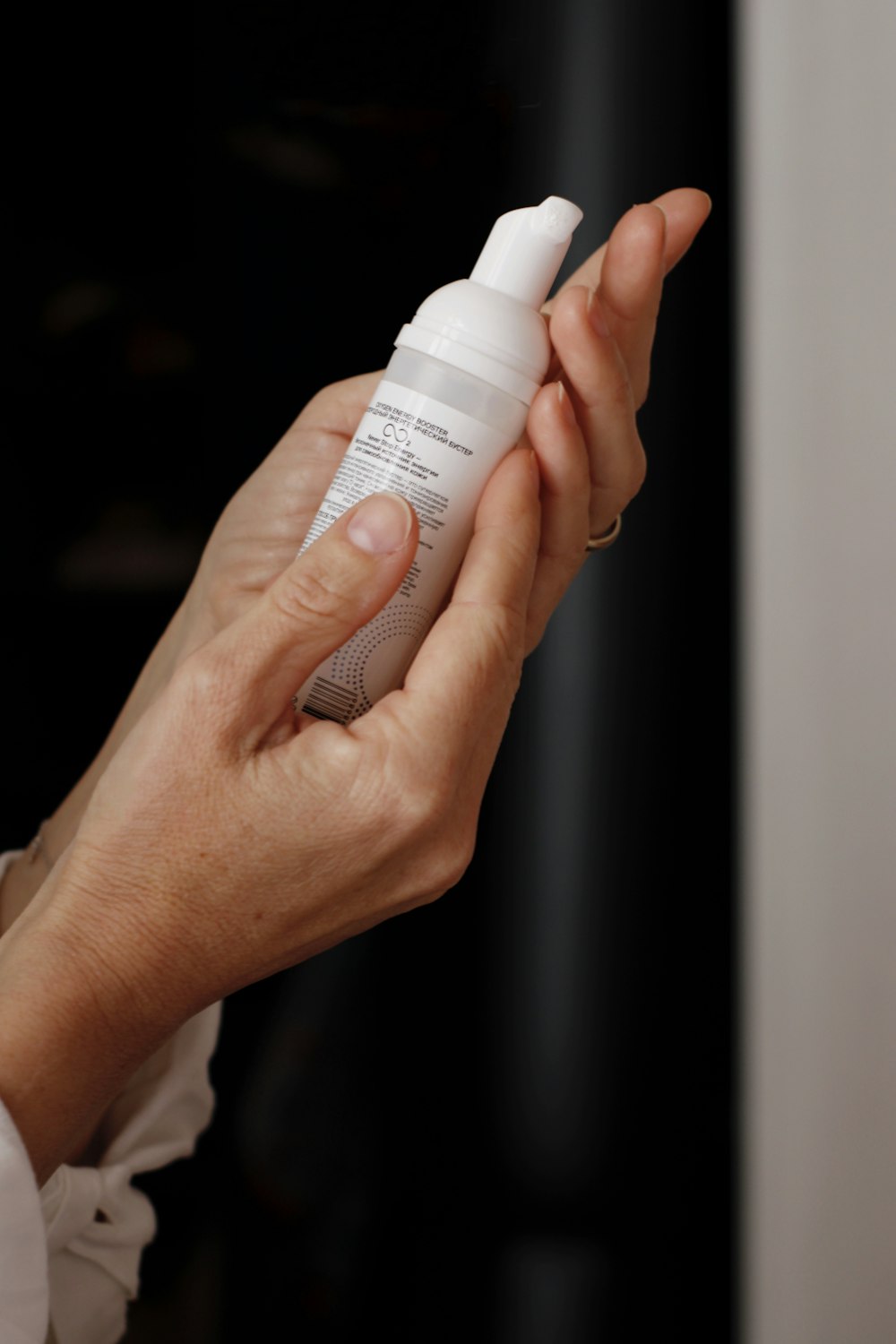What Is Fusidic Acid Cream Used For


Fusidic acid has the potential to cure a wide range of allergic reactions and inflammatory problems, including in the skin and hair. Fucidin is an antibiotic cream that may be used to treat a variety of skin disorders such as acne, rashes, and oedema.
In this article, we'll look into Fucidin Cream to better understand the advantages and hazards of using this medicine.
Fusidic acid cream is mostly used to treat skin diseases including impetigo and cellulitis. The affected skin is treated three or four times daily with fusidic acid cream or ointment. You can also treat eye infections using fusidic acid eye drops and conjunctivitis with the drug.
You can use Fucidin cream to treat such infections, including:
For these conditions, Zinplex Skin Healing Adult Barrier Cream 125ml can be a beneficial alternative. It is designed to promote healing and create a protective barrier on the skin, making it ideal for managing minor skin irritations and dryness associated with infections. It would be best if you only used Fucidin cream to treat bacterial-infected skin problems.
Do not use it to treat the following conditions:
Fusidic acid cream or ointment is applied three or four times a day to the affected skin. Because ointment is oily than cream, you should only use it on tiny areas.
Healing usually begins one to two weeks after the topical therapy. Consult with your medical specialists and follow their recommendations.
Fusicide is suggested for Staphylococcus bacteria-caused cutaneous infections. This illness is contagious and irritating. They seek to eliminate the microorganisms in the body that cause sickness. Sodium Fusidates are a group of salts based on fusilitic acid that operates similarly.
You could use a brand name for this medicine if it contains ointments. Antibacterial therapies such as fusidic acid cream and sodium fustidate ointment may typically heal skin infections fast.
Regarding eczema therapy, the Fucidin eczema cream and Fucidin H cream may be worth trying. What are the distinctions?
Fucidin H cream is a kind of cream that contains hydrocortisone (a non-steroidal steroid). It is the most efficient and risk-free method of treating an inflammatory rash. Fucidin cream includes 2% fusidic acid, which can be used to treat a range of illnesses, including bacterial infections.
Antibiotics are a type of drug that contains fusidic acid. It treats various skin infections caused by specific types of bacteria. Infections of this kind may include:
Fusidic acid cream may be offered under brand names and in several forms. This cream may not be accessible in all states or be approved for all ailments. Furthermore, not all types of this medicine may be appropriate for all of the problems listed above.
If you have not addressed this or are uncertain why you are being given this medicine, contact your doctor immediately. Do not discontinue using this cream without first consulting your healthcare provider.
It's prohibited to provide this medication to anybody else, even if they're suffering from the same symptoms as you. This medication may be harmful if administered without a prescription.

Each tube contains a 2% fusidic acid cream base. Non-medicinal substances include:
While Fusidic acid is effective for bacterial skin infections, its use should be reserved for conditions like impetigo or infected wounds. For more stubborn, dry skin issues like eczema or psoriasis, Hope’s Intensive Dry Skin Rescue 60g can offer relief. This product is particularly good for dry, cracked skin, and is perfect for those dealing with extreme dryness or rough skin that doesn't respond well to typical ointments.
For 7 to 14 days, apply a little quantity to the afflicted region 2 to 3 times a day. You may only apply the cream once or twice daily if your doctor has ordered you to cover the lesion with a gauze bandage.
If the drug is administered to the face, take care not to get it in your eyes.
Many factors, including body weight, other medical issues, and other medications, may alter the quantity of medicine required. If your doctor has prescribed a dose, do not alter your drug regimen without first checking with your doctor.
Take fusidic acid cream precisely as prescribed by your doctor. If you forget to take this prescription, take it right away. If your next application is approaching, skip the missing dosage and resume your regular regimen.
Many medications may cause adverse reactions. A side effect happens when a medicine is taken at the prescribed dose. Side effects might be moderate or severe, as well as transitory or permanent.
Fusidic acid can cause some side effects, including skin irritation, redness, or blistering. For those seeking a gentler option with fewer risks of irritation, Betamethasone can be considered for more severe cases of inflammation and eczema flare-ups. This corticosteroid works to reduce inflammation and alleviate irritation, especially for skin conditions that need long-term management.
The following side effects do not affect everyone who takes fusidic acid cream.
Discuss the risks and benefits of this prescription cream with your doctor if you are concerned about side effects.
At least 1% of fusidic acid users have reported experiencing adverse effects. The majority of these adverse effects are rather mild, and it's possible that some of them will disappear with time.
Consult your doctor if any of these side effects are severe or bothersome. Your pharmacist may be able to provide you with guidance on how to control side effects.
If any of the following occur, discontinue the treatment and seek emergency medical attention:
Other than the stated adverse effects, some persons may encounter them.
Consult your doctor if you have any unpleasant side effects while using fusidic acid cream.
Before using fusidic acid medicine, talk to your doctor about any health conditions or allergies you may have, any meds you're taking if you're pregnant or breastfeeding, and any other important health information.
These variables may have an impact on how you utilise this product.
Antibiotics administered to the skin can cause organisms not killed by the antibiotic to proliferate (overgrowth). Consult your doctor if the infection does not clear up within a few days or appears to be getting worse. This medicine should not be taken for more than 14 days.
Serious skin infections, or infections that do not appear to cure following topical (skin-applied) antibiotic treatment, should be treated with a systemic (oral or injectable) antibiotic or a topical antibiotic.
This drug may be excreted in breast milk. Your infant may be affected if you are breastfeeding and use fusidic acid. Breastfeeding should be discussed with your doctor before making a decision.
This medicine shouldn't be taken by a pregnant woman unless the benefits are greater than the risks. If you get pregnant while taking the medicine, you should call your doctor right away.
Before using fusidic acid cream, be aware of the following basic precautions:
Fusidic acid is exclusively for external usage. You should avoid contact with the mouth, nose, or anywhere near the eyes as it may cause irritation and other unfavourable consequences. In the case of an accident, you should wash your hands properly.
Fusidic acid should not be used for an extended period or in high doses since it might create significant adverse effects and make the skin sensitive to the treatment.
Fusidic acid may interact with other medications, which might have serious side effects. As a result, before commencing therapy with this prescription, you should inform your doctor about your existing medicines.
When using Fusidic acid, it is best to avoid taking live vaccinations. Alternative vaccination procedures that do not involve a live microbe strain can be investigated.
Based on your situation, your doctor may suggest you postpone the vaccine or the use of medicine to avoid their interaction.
Every prescription, herbal medication, and over-the-counter (non-prescription) you use should be disclosed to your doctor or prescriber. Tell them whether you use any vitamins as well. If you use them, you should notify your doctor since they can interfere with how many medications work. It includes caffeine, alcohol, cigarette nicotine, and illegal substances.
Depending on your specific situation, your doctor could advise that you:
It's not always necessary to stop taking one of your medications if there is an interaction between the two of them. Ask your doctor how to handle medication interactions that may exist or need to be addressed.
Both adult and newborn infections respond favourably to fusidic acid treatment. If this product is contaminated with fusida, no one should be exposed while ingesting it. To know your sensitivities, you must first review their ingredient list.
For best results, apply Fusidic acid cream to the affected area 2 to 3 times a day, ensuring you follow your doctor’s prescribed regimen. If you experience irritation or your condition does not improve, consider switching to an alternative such as Zinplex Skin Healing Adult Barrier Cream 125ml, which helps to restore the skin barrier and soothe irritated skin naturally.
Like with most medications, fusidacin is ineffective for some people. Fusid acid is safe for children to use. Fusic acid should not be used for these reasons. A list of components can be found in a patient information booklet.
After a few hours, things should start to get better. As long as you've spoken with your doctor, it's crucial to use lotions or ointments at the appointed time. Therapy with fusidic cream and ointment typically lasts one to two days, although it might last longer.
You cannot apply Fucidin H cream to open wounds unless your doctor instructs you to. It is difficult for anyone to use Fucidin H cream unless a doctor explicitly recommends them. Adrenosuppression may start.
Welzo offers a large range of skincare products. To learn more about certain skin conditions and available treatments.








Plus get the inside scoop on our latest content and updates in our monthly newsletter.